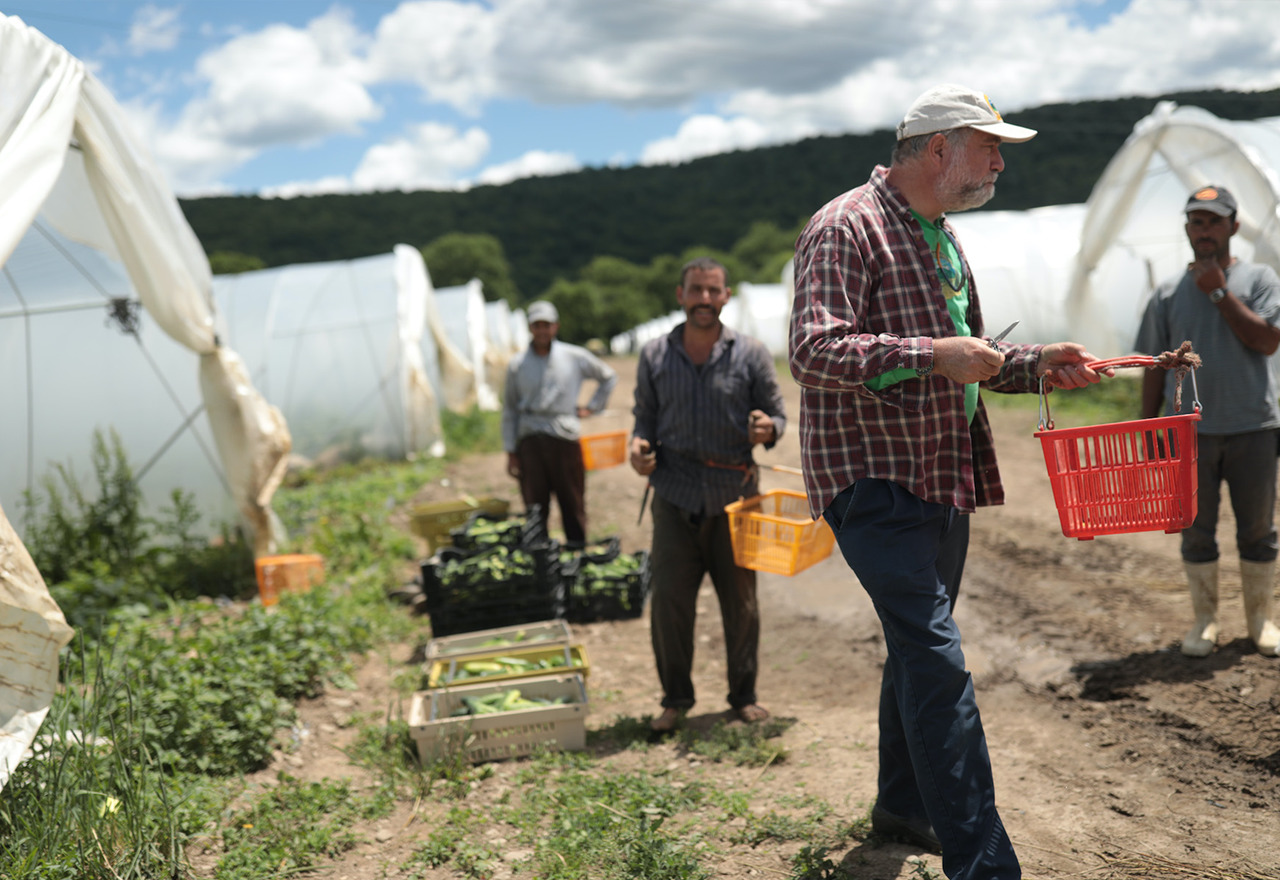The Chef’s Pick
New York City’s most memorable meals start in the fields of Norwich Meadows Farm
By Michele Marchetti
On a November morning in New York City, the pink-tipped kale was turning heads.
Grown by Norwich Meadows Farm and on display at the city’s famed Union Square Greenmarket, the Brassica was one of many items drawing shoppers accustomed to the farm’s penchant for unusual produce.
Home cooks examined Watermelon, White Daikon, and Bordeaux radishes, as the city’s top chefs gathered larger quantities for first-course salads and ferments.
Directing the flurry of activity was owner Zaid Kurdieh, a Palestinian American who started the farm in 1998 with his wife, Haifa, because they wanted to feed their community — and themselves — the nourishing food they grew up eating.
In Kurdieh’s opinion, grocery store vegetables typically leave much to be desired. Take broccoli. “The organic broccoli is generally smaller than conventional,” he said, holding up one of his stalks. “Synthetic nitrogen pumps up the conventional, but they lack flavor.”
Chef Michael Anthony of Gramercy Tavern is one of many chefs who appreciates the difference. He stocked his home kitchen with produce from the Norwich booth for two years before disclosing his profession and buying for the restaurant. Now there’s an off-menu item at Gramercy featuring Norwich’s produce. (You’ll have to ask Kurdieh for the Arabic word that tells waitstaff you’re in the know.)
Zaid and Haifa are betting that their shared yearning for high-quality produce will continue to sustain their organic farm, while also benefiting the regional economy. With 170 acres and 180 high tunnels, the farm supplies more than 1,500 vegetable varieties to farmers markets and restaurants from New York City to southwestern and central New York.
Kurdieh certified the farm with only a half acre. He views organic as the correct way, an antidote to the destructive industrial food system. But ethical doesn’t mean easy.
“We always had bugs and pressure, but now you have super bugs and super pressures because of the use of chemicals,” he said.
The Norwich Meadows team is uniquely suited to the challenge. In the farm’s early years, Kurdieh connected with a colleague in Egypt who operated a certified organic farm run by a crew skilled in organic growing practices and high tunnels (structures that provide protection from wind, cold, and pests). He’s been employing workers from Egypt ever since and has helped some of them obtain green cards.
Growing food that nourishes, rather than harms, our bodies and the Earth, while earning enough to pay those farmers a fair wage, requires constant innovation. Kurdieh works with breeders to bring new, locally adapted vegetables to his farm.
His most notable project, a collaboration with Cornell vegetable breeder Michael Mazourek, involves pole beans, favored for their ability to replenish nutrients that more traditional high tunnel crops rob from the soil. Over years of hard work, he selected from his favorite pole beans to breed 10 new, disease-resistant varieties that will flourish in his fields.
Thanks to plenty of input from the chefs who made multiple visits to Haifa’s kitchen to sample the beans, they also earn rave reviews for flavor.
Follow Cornucopia’s eNews for tips from Kurdieh for storing organic produce, along with a recipe inspired by Norwich’s organic produce. To read more about Norwich Farms, see our Living Soil Campaign. Not getting our eNews? Subscribe today.


